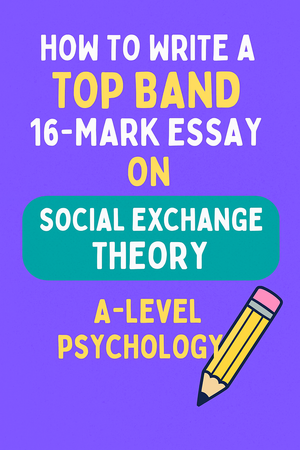Describe and Evaluate the Nature–Nurture Debate in Psychology (16 marks)
The nature–nurture debate in psychology centres on the relative contribution of genetic inheritance and environmental experience to human behaviour. The nature side argues that behaviour is primarily shaped by biological factors such as genes, brain chemistry, and evolutionary adaptations. Twin and adoption studies have consistently shown high concordance rates for traits like intelligence, personality, and mental illness, suggesting a strong genetic component. For example, Gottesman’s research into schizophrenia found that identical twins had a 48% concordance rate compared to 17% in fraternal twins, indicating a significant hereditary influence. Similarly, Caspi et al. (2003) found that individuals with a particular gene variant were more likely to develop depression when exposed to stressful life events, showing how genetic vulnerability interacts with environmental triggers.
On the other hand, the nurture perspective emphasises the role of learning, experience, and culture. Behaviourists argue that individuals are shaped by conditioning and reinforcement, while social learning theorists highlight the importance of observation and imitation. Bandura’s Bobo doll study (1961) demonstrated that children exposed to aggressive role models were more likely to imitate that behaviour, supporting the idea that aggression is learned rather than innate. Watson and Rayner’s Little Albert experiment (1920) showed how phobias could be conditioned, illustrating the power of environmental stimuli in shaping emotional responses. Margaret Mead’s anthropological research (1935) revealed cultural differences in gender roles, suggesting that behaviours considered typical in one society may be unusual in another, further supporting the influence of nurture.
The question is: when it comes to this debate, should we be focusing on the relative contribution each side brings? There is strong justification for doing so, as it allows psychologists to identify which behaviours are more biologically driven and which are more environmentally shaped. McGuffin et al. (1996) found that depression had a heritability estimate of around 46%, meaning that more than half of the variation could be attributed to environmental factors. Caspi et al. (2003) showed that individuals with a specific 5-HTT gene variant were more likely to develop depression when exposed to stressful life events, suggesting that genetic vulnerability interacts with environmental triggers. Plomin et al. (1997) used twin studies to demonstrate that intelligence has a substantial genetic basis, but also varies depending on socioeconomic status. Bouchard et al. (1990) studied twins raised apart and found striking similarities in personality and IQ, reinforcing the role of nature. These studies suggest that quantifying relative influence helps tailor interventions — for example, using medication for biologically rooted disorders and behavioural therapy for environmentally influenced ones. So yes, there is merit in focusing on the contribution each side brings, especially when supported by empirical evidence.
On the other hand, is it more productive to view this debate through an interactionist lens? Many psychologists argue that behaviour is rarely the product of one factor alone, and instead emerges from the dynamic interplay between biology and environment. The diathesis–stress model illustrates this well: individuals may inherit a predisposition for a disorder, but it is environmental stressors that trigger its onset. Epigenetics research by Meaney and Szyf (2005) showed that maternal care in rats altered gene expression linked to stress regulation, demonstrating how nurture can shape biology. Rutter et al. (2001) studied Romanian orphans and found that early deprivation had long-term effects on development, but outcomes varied depending on age of adoption, suggesting interaction between biological resilience and environmental input. Scarr and McCartney (1983) proposed that genes influence the environments individuals seek out, creating feedback loops between nature and nurture. These findings support the idea that nature and nurture are not competing forces but complementary ones. Therefore, while measuring influence has its place, the interactionist perspective offers a more holistic and accurate understanding of human behaviour — and may be the most useful framework for psychological theory and practice.





